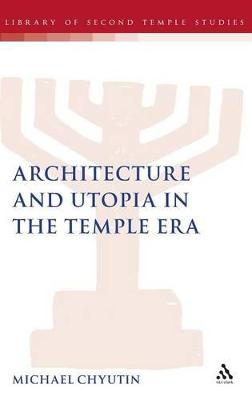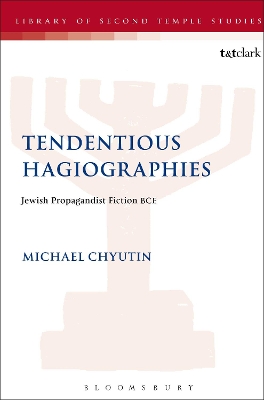The Library of Second Temple Studies
2 primary works
Book 58
This book proposes a new reconstruction of the Temple, which differs from conventional descriptions in Jewish literary sources during the First and Second Temple eras. Individual descriptions of the Temple are examined independently and the influence of earlier descriptions on subsequent ones is considered. Detailed architectural diagrams and three-dimensional models accompany the different reconstructions of the temple. Michael Chyutin examines the descriptions of the Meeting-Tent Tabernacle Temple, the descriptions of Solomon's Temple according to "1 Kings and 2 Chronicles", descriptions of Ezekiel's temple and its courtyards, the Temple and courtyards described in the Temple Scroll, the Second Temple according to Josephus Flavius and other sources, and the Temple as described in the Midoth Tractate. Descriptions of regional planning and the Temple City according to Ezekiel and the New Jerusalem Scroll are also examined. The final chapter examines architectural characteristics common to all of the descriptions, with the aim of identifying a unique architectural theory.
Book 77
Tendentious Historiographies surveys ten Jewish literary works composed in Hebrew, Aramaic, or Greek between the 8th and the mid-2nd century BCE, and shows that each deals with major problems of the Jewish populations in the Land of Israel or in the dispersions. Michael Chyutin provides insightful and at times surprising explorations of the purpose behind these texts.
Jonah is viewed as a grotesque, a parody of prophetic writing. Ahiqar preaches the breaking of religious, national and familial frameworks and supports assimilation into the local society. Esther calls for Jewish national and familial solidarity and recommends concealment of religious identity. Daniel preaches individual observance of the religious precepts. Susannah also advocates national and religious solidarity. Tobit tells the story of the founders of the sect of the Therapeutes. Ruth supports the Jews who did not go into exile in Babylon. The play Exagoge and the romance Joseph and Aseneth support the Oniad temple in Egypt. Finally, Judith supports the moderate approach of the Jerusalem priests against the Hasmoneans' demand for violent struggle.
Jonah is viewed as a grotesque, a parody of prophetic writing. Ahiqar preaches the breaking of religious, national and familial frameworks and supports assimilation into the local society. Esther calls for Jewish national and familial solidarity and recommends concealment of religious identity. Daniel preaches individual observance of the religious precepts. Susannah also advocates national and religious solidarity. Tobit tells the story of the founders of the sect of the Therapeutes. Ruth supports the Jews who did not go into exile in Babylon. The play Exagoge and the romance Joseph and Aseneth support the Oniad temple in Egypt. Finally, Judith supports the moderate approach of the Jerusalem priests against the Hasmoneans' demand for violent struggle.

